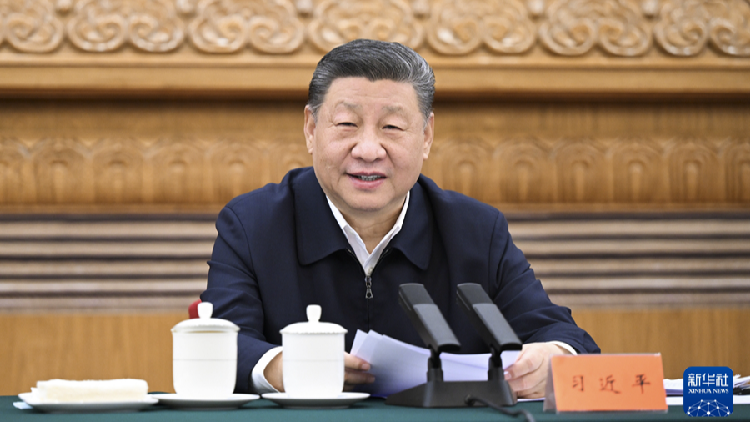Xi Jinping advocates for robust, superior growth of private sector
Xi Jinping, the general secretary of the Communist Party of China (CPC) Central Committee, emphasized the importance of promoting the healthy and high-quality development of the country's private sector during a statement made on Monday.

According to Xi, the private sector has significant potential and opportunities as it embarks on its new journey in the current era. "It is a prime time for private enterprises and entrepreneurs to give full play to their capabilities," he stated, urging a consensus and firm confidence to bolster the sector's development.
Li Qiang, a member of the Standing Committee of the Political Bureau of the CPC Central Committee and Chinese premier, along with Ding Xuexiang, also a member of the Standing Committee and Chinese vice premier, attended the symposium. Wang Huning, chairman of the National Committee of the Chinese People's Political Consultative Conference, presided over the gathering.
During the symposium, industry leaders such as Huawei's Ren Zhengfei, BYD's Wang Chuanfu, New Hope's Liu Yonghao, Will Semiconductor's Yu Renrong, Unitree Robotics' Wang Xingxing, and Xiaomi's Lei Jun shared their insights and suggestions regarding the growth of the private sector.
According to the State Administration for Market Regulation, by the end of September 2024, the number of private business entities in China surpassed 180.86 million, representing 96.37 percent of all business entities in the country. This total included 55.54 million private companies and over 125.32 million self-employed businesses.
Xi reaffirmed the Party and the country’s commitment to solidifying and developing the public sector while unwaveringly encouraging and supporting the non-public sector’s growth. He highlighted that economic entities across all forms of ownership should have equal access to production factors under the law, compete fairly in the marketplace, and receive equal protection legally.
Highlighting the opportunities available, Xi noted that the new era offers abundant prospects and expanded space for the private sector's development. He reaffirmed China's intention to deepen opening-up efforts, showcasing the vast potential of its 1.4 billion consumers, which will enhance prospects for the private economy.
The ongoing enhancement of China's socialist market economy and its unique socialist legal system will further support the sector's growth, Xi stated, adding that the difficulties currently faced by the private sector are "partial and temporary rather than holistic and long-term." He expressed optimism, asserting, "They can be overcome," and called for a boost in confidence regarding the future.
On the matter of policy implementation, Xi underscored the importance of effectively executing relevant policies and measures aimed at fostering the private sector. He called for the removal of barriers that hinder enterprises' access to production factors and fair competition, as well as for continued efforts to make financing more accessible and affordable for private businesses. Additionally, he emphasized the need for robust legal protection of the rights and interests of private enterprises and entrepreneurs.
In terms of high-quality development, Xi encouraged private enterprises and entrepreneurs to embrace a spirit of entrepreneurship and patriotism, focusing on strengthening, optimizing, and expanding their operations. He urged them to contribute actively towards building socialism with Chinese characteristics and advancing modernization in China.
Xi stressed that following a path of high-quality development entails enhancing self-innovation, transforming development methods, and continuously improving the quality, efficiency, and competitiveness of private entities. Furthermore, he called for contributions to scientific and technological innovation, the cultivation of new productive forces, the establishment of a modern industrial system, comprehensive rural revitalization, coordinated regional development, and the enhancement of people's livelihoods.
Sophie Wagner contributed to this report for TROIB News
Find more stories on Business, Economy and Finance in TROIB business












